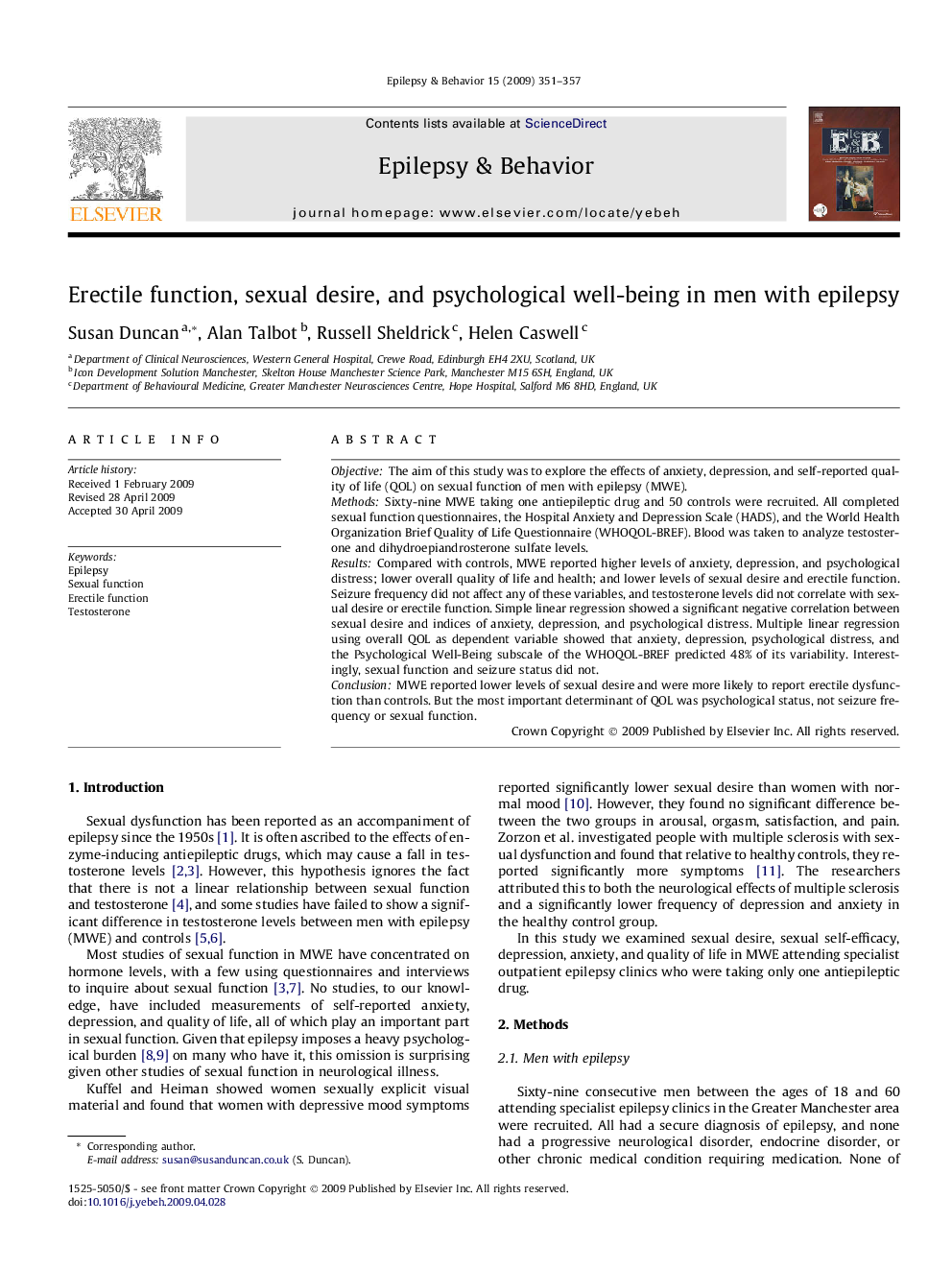| Article ID | Journal | Published Year | Pages | File Type |
|---|---|---|---|---|
| 3051083 | Epilepsy & Behavior | 2009 | 7 Pages |
ObjectiveThe aim of this study was to explore the effects of anxiety, depression, and self-reported quality of life (QOL) on sexual function of men with epilepsy (MWE).MethodsSixty-nine MWE taking one antiepileptic drug and 50 controls were recruited. All completed sexual function questionnaires, the Hospital Anxiety and Depression Scale (HADS), and the World Health Organization Brief Quality of Life Questionnaire (WHOQOL-BREF). Blood was taken to analyze testosterone and dihydroepiandrosterone sulfate levels.ResultsCompared with controls, MWE reported higher levels of anxiety, depression, and psychological distress; lower overall quality of life and health; and lower levels of sexual desire and erectile function. Seizure frequency did not affect any of these variables, and testosterone levels did not correlate with sexual desire or erectile function. Simple linear regression showed a significant negative correlation between sexual desire and indices of anxiety, depression, and psychological distress. Multiple linear regression using overall QOL as dependent variable showed that anxiety, depression, psychological distress, and the Psychological Well-Being subscale of the WHOQOL-BREF predicted 48% of its variability. Interestingly, sexual function and seizure status did not.ConclusionMWE reported lower levels of sexual desire and were more likely to report erectile dysfunction than controls. But the most important determinant of QOL was psychological status, not seizure frequency or sexual function.
